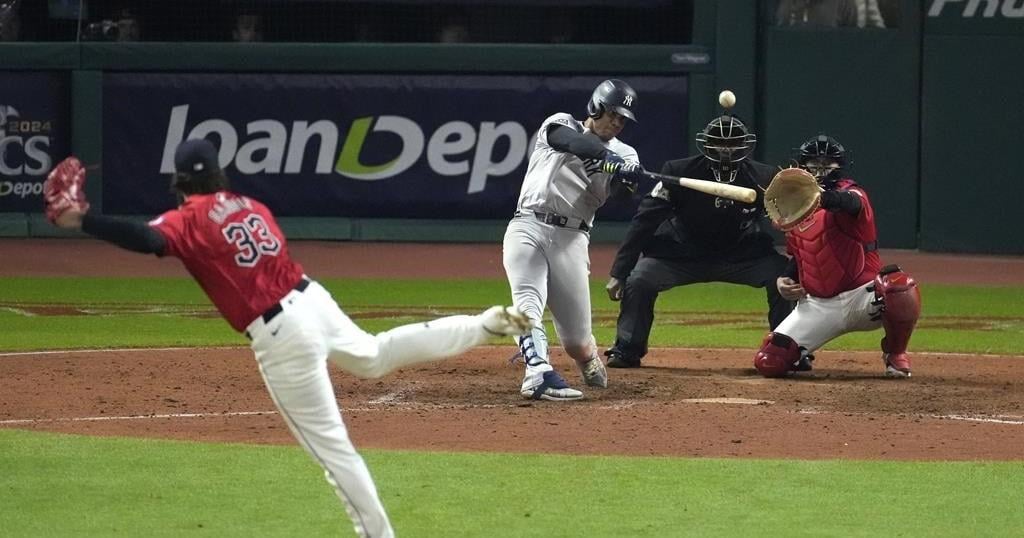Canadians should consider the “geopolitical risks” of doing business in China, Foreign Affairs Minister Melanie Joly warned Wednesday amid growing expectations for the policy reset she confirmed will be coming “within a month.”

During a talk for the University of Toronto’s Munk School of Global Affairs and Public Policy, Joly made some of her sharpest comments about the Chinese government to date — and laid out a pledge to shift Canadian policy on the country.
“What I would like to say to Canadians doing business in and with China: you need to be clear-eyed,” Joly said.
“The (decisions) you take as businesspeople are your own. As Canada’s top diplomat, my job is to tell you that there are geopolitical risks linked to doing business with the country.”
During her speech, Joly detailed Canada’s plans to deepen its ties to the Indo-Pacific region — and to take a tougher approach to threats emerging from that part of the world. The “full, funded” Indo-Pacific strategy, she said, “will be launched within a month.”
The announcement comes on the heels of reporting from Global News of a campaign of foreign interference that China has allegedly been waging in Canada.
On Monday, Global News reported that Canadian intelligence officials warned Prime Minister Justin Trudeau that China has allegedly been targeting Canada with a vast campaign of foreign interference, which included funding a clandestine network of at least 11 federal candidates running in the 2019 election.
Speaking on Wednesday, Joly assured Canadians that the government “will do more to tackle foreign interference.”
“We won’t let any foreign actor meddle in our democracy. Period,” she said.
Joly added that Canada needs to tackle foreign influence at home and in the “digital sphere”
As part of that effort, she said the government will invest in “deepening our understanding of how China thinks, operates and plans. How it exerts influence in the region and around the world.”
Key embassies in Canada’s network will have “dedicated experts,” Joly said, to deepen the government’s understanding of China’s goals and challenges.
“This will become a focus of our diplomatic effort,” she said.
While Joly offered few specific details on the plan and did not say how much money will be earmarked for it, she assured the room that Canada’s new approach to China “will be outlined” in the Indo-Pacific strategy released in the next month.
“We can’t have an Indo-Pacific strategy without it,” she said.
Throughout her speech, Joly offered tidbits of information about the coming strategy. For example, she said the government will help Canadian businesses working in China to “diversify and mitigate risk across the region.”
The government will also add a “national economic security lens” on foreign investment in Canada — including in the critical minerals sector.
In a press release issued shortly after Joly’s speech, the Business Council of Canada welcomed Joly’s announcement about coming Indo-Pacific strategy — and suggested the government “work closely with businesses” as it finalizes the plan.
“Canada needs a clear, consistent policy governing how we engage with other Indo-Pacific nations, and, amid shifting geopolitical dynamics, it is crucial that our efforts align with those of our allies including the United States,” they said in a statement.
“The China policy announced today combines a realistic appraisal of the risks and regional tensions with a candid recognition Canada must continue to work with China on global priorities such as emissions reductions. ”
Guy Saint-Jacques, a former Canadian ambassador to China, was also happy to see the planned shift in Canada’s response to China.
“I think it’s a major change in the approach with China, one that I welcome,” he said.
However, Saint-Jacques said the “proof will be in the pudding.”
“We’ll have to see exactly how much new resources are will be devoted to the exercise,” he said.
“I think that will be also a very important signal for our partners in Asia.”
Joly recognized that China’s “sheer size” means that Canada cannot fully disengage from dealing with the country. The Chinese government’s cooperation is necessary, she said, to address issues like global health, climate change and nuclear non-proliferation.
Still, she issued a sharp critique of China’s increasing expansionist ambitions — which have seen it tighten its grip on Hong Kong, and threaten Taiwan’s independence — as well as its widely documented human rights abuses of the Uyghurs in the Xinjiang region.
“China is an increasingly disruptive global power,” Joly said.
“It seeks to shape the global environment into one that is more permissive for interests and values that increasingly depart from ours.”
Canada will “always” differentiate between the Chinese government’s actions, she said, and the actions of the Chinese people. But China’s rise as a global actor is forcing countries to reshape their “strategic outlook” in the region.
“To put it plainly: the decisions made in the region will impact Canadian lives for generations,” Joly said.
“We must be at the table, step up our game, and increase our influence.”
— With files from Global News’ Mackenzie Gray
Source link
Related























